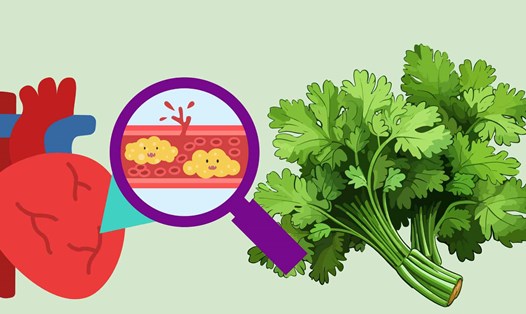According to Healthline, sesame seeds contain many healthy fats, especially monounsaturated and polyunsaturated fatty acids, which can reduce bad cholesterol (LDL) and increase good cholesterol (HDL) in the blood. Thanks to that, eating a small amount of sesame seeds every day helps improve cardiovascular health, limiting the formation of plaque in the arteries - the main cause of high blood fat.
Medical News Today experts also said that sesame seeds are a rich source of lignans - a powerful antioxidant compound that helps prevent liver cell damage and promote fat metabolism. In addition, magnesium and vitamin E in sesame seeds also help improve blood circulation and support blood pressure balance.
You can add sesame seeds to your daily meals in many ways: sprinkle on porridge, salads, yogurt or use them to prepare dishes such as fish, chicken, and grilled vegetables. Just 1-2 tablespoons of sesame seeds per day is enough for the body to absorb the necessary amount of nutrients without worrying about gaining weight.
According to Harvard Health Publishing, maintaining the habit of eating nuts rich in good fats such as sesame, almonds or walnuts helps reduce the risk of cardiovascular disease and high blood fat by 15-20%. This is a natural, simple solution but brings sustainable results if combined with a healthy diet and regular exercise.











